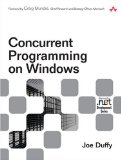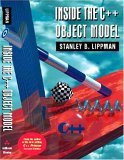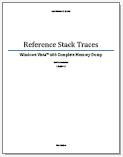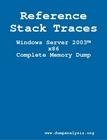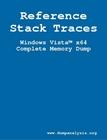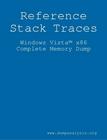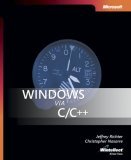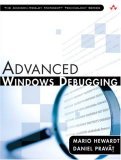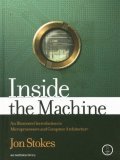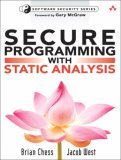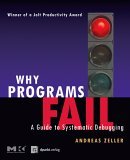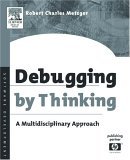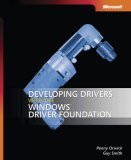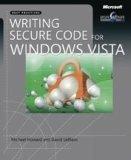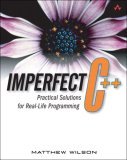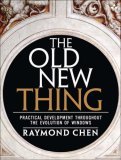 Multiple Exceptions (user mode) - Modeling Example
Multiple Exceptions (user mode) - Modeling Example Multiple Exceptions (kernel mode)
Multiple Exceptions (kernel mode) Multiple Exceptions (managed space)
Multiple Exceptions (managed space)- Multiple Exceptions (stowed)
 Dynamic Memory Corruption (process heap)
Dynamic Memory Corruption (process heap) Dynamic Memory Corruption (kernel pool)
Dynamic Memory Corruption (kernel pool)- Dynamic Memory Corruption (managed heap)
 False Positive Dump
False Positive Dump Lateral Damage (general)
Lateral Damage (general)- Lateral Damage (CPU mode)
 Optimized Code (function parameter reuse)
Optimized Code (function parameter reuse) Invalid Pointer (general)
Invalid Pointer (general)- Invalid Pointer (objects)
 NULL Pointer (code)
NULL Pointer (code) NULL Pointer (data)
NULL Pointer (data) Inconsistent Dump
Inconsistent Dump Hidden Exception (user space)
Hidden Exception (user space)- Hidden Exception (kernel space)
- Hidden Exception (managed space)
 Deadlock (critical sections)
Deadlock (critical sections) Deadlock (executive resources)
Deadlock (executive resources) Deadlock (mixed objects, user space)
Deadlock (mixed objects, user space) Deadlock (LPC)
Deadlock (LPC) Deadlock (mixed objects, kernel space)
Deadlock (mixed objects, kernel space) Deadlock (self)
Deadlock (self)- Deadlock (managed space)
- Deadlock (.NET Finalizer)
 Changed Environment
Changed Environment Incorrect Stack Trace
Incorrect Stack Trace OMAP Code Optimization
OMAP Code Optimization No Component Symbols
No Component Symbols Insufficient Memory (committed memory)
Insufficient Memory (committed memory) Insufficient Memory (handle leak)
Insufficient Memory (handle leak) Insufficient Memory (kernel pool)
Insufficient Memory (kernel pool) Insufficient Memory (PTE)
Insufficient Memory (PTE) Insufficient Memory (module fragmentation)
Insufficient Memory (module fragmentation) Insufficient Memory (physical memory)
Insufficient Memory (physical memory) Insufficient Memory (control blocks)
Insufficient Memory (control blocks)- Insufficient Memory (reserved virtual memory)
- Insufficient Memory (session pool)
- Insufficient Memory (stack trace database)
- Insufficient Memory (region)
- Insufficient Memory (stack)
 Spiking Thread
Spiking Thread Module Variety
Module Variety Stack Overflow (kernel mode)
Stack Overflow (kernel mode) Stack Overflow (user mode)
Stack Overflow (user mode) Stack Overflow (software implementation)
Stack Overflow (software implementation)- Stack Overflow (insufficient memory)
- Stack Overflow (managed space)
 Managed Code Exception
Managed Code Exception- Managed Code Exception (Scala)
- Managed Code Exception (Python)
 Truncated Dump
Truncated Dump Waiting Thread Time (kernel dumps)
Waiting Thread Time (kernel dumps) Waiting Thread Time (user dumps)
Waiting Thread Time (user dumps) Memory Leak (process heap) - Modeling Example
Memory Leak (process heap) - Modeling Example Memory Leak (.NET heap)
Memory Leak (.NET heap)- Memory Leak (page tables)
- Memory Leak (I/O completion packets)
- Memory Leak (regions)
 Missing Thread (user space)
Missing Thread (user space)- Missing Thread (kernel space)
 Unknown Component
Unknown Component Double Free (process heap)
Double Free (process heap) Double Free (kernel pool)
Double Free (kernel pool) Coincidental Symbolic Information
Coincidental Symbolic Information Stack Trace
Stack Trace- Stack Trace (I/O request)
- Stack Trace (file system filters)
- Stack Trace (database)
- Stack Trace (I/O devices)
 Virtualized Process (WOW64)
Virtualized Process (WOW64)- Virtualized Process (ARM64EC and CHPE)
 Stack Trace Collection (unmanaged space)
Stack Trace Collection (unmanaged space)- Stack Trace Collection (managed space)
- Stack Trace Collection (predicate)
- Stack Trace Collection (I/O requests)
- Stack Trace Collection (CPUs)
 Coupled Processes (strong)
Coupled Processes (strong) Coupled Processes (weak)
Coupled Processes (weak) Coupled Processes (semantics)
Coupled Processes (semantics) High Contention (executive resources)
High Contention (executive resources) High Contention (critical sections)
High Contention (critical sections) High Contention (processors)
High Contention (processors)- High Contention (.NET CLR monitors)
- High Contention (.NET heap)
- High Contention (sockets)
 Accidental Lock
Accidental Lock Passive Thread (user space)
Passive Thread (user space) Passive System Thread (kernel space)
Passive System Thread (kernel space) Main Thread
Main Thread Busy System
Busy System Historical Information
Historical Information Object Distribution Anomaly (IRP)
Object Distribution Anomaly (IRP)- Object Distribution Anomaly (.NET heap)
 Local Buffer Overflow (user space)
Local Buffer Overflow (user space)- Local Buffer Overflow (kernel space)
 Early Crash Dump
Early Crash Dump Hooked Functions (user space)
Hooked Functions (user space) Hooked Functions (kernel space)
Hooked Functions (kernel space)- Hooked Modules
 Custom Exception Handler (user space)
Custom Exception Handler (user space) Custom Exception Handler (kernel space)
Custom Exception Handler (kernel space) Special Stack Trace
Special Stack Trace Manual Dump (kernel)
Manual Dump (kernel) Manual Dump (process)
Manual Dump (process) Wait Chain (general)
Wait Chain (general) Wait Chain (critical sections)
Wait Chain (critical sections) Wait Chain (executive resources)
Wait Chain (executive resources) Wait Chain (thread objects)
Wait Chain (thread objects) Wait Chain (LPC/ALPC)
Wait Chain (LPC/ALPC) Wait Chain (process objects)
Wait Chain (process objects) Wait Chain (RPC)
Wait Chain (RPC) Wait Chain (window messaging)
Wait Chain (window messaging) Wait Chain (named pipes)
Wait Chain (named pipes)- Wait Chain (mutex objects)
- Wait Chain (pushlocks)
- Wait Chain (CLR monitors)
- Wait Chain (RTL_RESOURCE)
- Wait Chain (modules)
- Wait Chain (nonstandard synchronization)
- Wait Chain (C++11, condition variable)
- Wait Chain (SRW lock)
 Corrupt Dump
Corrupt Dump Dispatch Level Spin
Dispatch Level Spin No Process Dumps
No Process Dumps No System Dumps
No System Dumps Suspended Thread
Suspended Thread Special Process
Special Process Frame Pointer Omission
Frame Pointer Omission False Function Parameters
False Function Parameters Message Box
Message Box Self-Dump
Self-Dump Blocked Thread (software)
Blocked Thread (software) Blocked Thread (hardware)
Blocked Thread (hardware)- Blocked Thread (timeout)
 Zombie Processes
Zombie Processes Wild Pointer
Wild Pointer Wild Code
Wild Code Hardware Error
Hardware Error Handle Limit (GDI, kernel space)
Handle Limit (GDI, kernel space)- Handle Limit (GDI, user space)
 Missing Component (general)
Missing Component (general) Missing Component (static linking, user mode)
Missing Component (static linking, user mode) Execution Residue (unmanaged space, user)
Execution Residue (unmanaged space, user)- Execution Residue (unmanaged space, kernel)
- Execution Residue (managed space)
 Optimized VM Layout
Optimized VM Layout- Invalid Handle (general)
- Invalid Handle (managed space)
- Overaged System
- Thread Starvation (realtime priority)
- Thread Starvation (normal priority)
- Duplicated Module
- Not My Version (software)
- Not My Version (hardware)
- Data Contents Locality
- Nested Exceptions (unmanaged code)
- Nested Exceptions (managed code)
- Affine Thread
- Self-Diagnosis (user mode)
- Self-Diagnosis (kernel mode)
- Self-Diagnosis (registry)
- Inline Function Optimization (unmanaged code)
- Inline Function Optimization (managed code)
- Critical Section Corruption
- Lost Opportunity
- Young System
- Last Error Collection
- Hidden Module
- Data Alignment (page boundary)
- C++ Exception
- Divide by Zero (user mode)
- Divide by Zero (kernel mode)
- Swarm of Shared Locks
- Process Factory
- Paged Out Data
- Semantic Split
- Pass Through Function
- JIT Code (.NET)
- JIT Code (Java)
- Ubiquitous Component (user space)
- Ubiquitous Component (kernel space)
- Nested Offender
- Virtualized System
- Effect Component
- Well-Tested Function
- Mixed Exception
- Random Object
- Missing Process
- Platform-Specific Debugger
- Value Deviation (stack trace)
- Value Deviation (structure field)
- Runtime Thread (CLR)
- Runtime Thread (Python, Linux)
- Coincidental Frames
- Fault Context
- Hardware Activity
- Incorrect Symbolic Information
- Message Hooks - Modeling Example
- Coupled Machines
- Abridged Dump
- Exception Stack Trace
- Distributed Spike
- Instrumentation Information
- Template Module
- Invalid Exception Information
- Shared Buffer Overwrite
- Pervasive System
- Problem Exception Handler
- Same Vendor
- Crash Signature
- Blocked Queue (LPC/ALPC)
- Fat Process Dump
- Invalid Parameter (process heap)
- Invalid Parameter (runtime function)
- String Parameter
- Well-Tested Module
- Embedded Comment
- Hooking Level
- Blocking Module
- Dual Stack Trace
- Environment Hint
- Top Module
- Livelock
- Technology-Specific Subtrace (COM interface invocation)
- Technology-Specific Subtrace (dynamic memory)
- Technology-Specific Subtrace (JIT .NET code)
- Technology-Specific Subtrace (COM client call)
- Dialog Box
- Instrumentation Side Effect
- Semantic Structure (PID.TID)
- Directing Module
- Least Common Frame
- Truncated Stack Trace
- Data Correlation (function parameters)
- Data Correlation (CPU times)
- Module Hint
- Version-Specific Extension
- Cloud Environment
- No Data Types
- Managed Stack Trace
- Managed Stack Trace (Scala)
- Managed Stack Trace (Python)
- Coupled Modules
- Thread Age
- Unsynchronized Dumps
- Pleiades
- Quiet Dump
- Blocking File
- Problem Vocabulary
- Activation Context
- Stack Trace Set
- Double IRP Completion
- Caller-n-Callee
- Annotated Disassembly (JIT .NET code)
- Annotated Disassembly (unmanaged code)
- Handled Exception (user space)
- Handled Exception (.NET CLR)
- Handled Exception (kernel space)
- Duplicate Extension
- Special Thread (.NET CLR)
- Hidden Parameter
- FPU Exception
- Module Variable
- System Object
- Value References
- Debugger Bug
- Empty Stack Trace
- Problem Module
- Disconnected Network Adapter
- Network Packet Buildup
- Unrecognizable Symbolic Information
- Translated Exception
- Regular Data
- Late Crash Dump
- Blocked DPC
- Coincidental Error Code
- Punctuated Memory Leak
- No Current Thread
- Value Adding Process
- Activity Resonance
- Stored Exception
- Spike Interval
- Stack Trace Change
- Unloaded Module
- Deviant Module
- Paratext
- Incomplete Session
- Error Reporting Fault
- First Fault Stack Trace
- Frozen Process
- Disk Packet Buildup
- Hidden Process
- Active Thread (Mac OS X)
- Active Thread (Windows)
- Critical Stack Trace
- Handle Leak
- Module Collection
- Module Collection (predicate)
- Deviant Token
- Step Dumps
- Broken Link
- Debugger Omission
- Glued Stack Trace
- Reduced Symbolic Information
- Injected Symbols
- Distributed Wait Chain
- One-Thread Process
- Module Product Process
- Crash Signature Invariant
- Small Value
- Shared Structure
- Thread Cluster
- False Effective Address
- Screwbolt Wait Chain
- Design Value
- Hidden IRP
- Tampered Dump
- Memory Fluctuation (process heap)
- Last Object
- Rough Stack Trace (unmanaged space)
- Rough Stack Trace (managed space)
- Past Stack Trace
- Ghost Thread
- Dry Weight
- Exception Module
- Reference Leak
- Origin Module
- Hidden Call
- Corrupt Structure
- Software Exception
- Crashed Process
- Variable Subtrace
- User Space Evidence
- Internal Stack Trace
- Distributed Exception (managed code)
- Thread Poset
- Stack Trace Surface
- Hidden Stack Trace
- Evental Dumps
- Clone Dump
- Parameter Flow
- Critical Region
- Diachronic Module
- Constant Subtrace
- Not My Thread
- Window Hint
- Place Trace
- Stack Trace Signature
- Relative Memory Leak
- Quotient Stack Trace
- Module Stack Trace
- Foreign Module Frame
- Unified Stack Trace
- Mirror Dump Set
- Memory Fibration
- Aggregated Frames
- Frame Regularity
- Stack Trace Motif
- System Call
- Stack Trace Race
- Hyperdump
- Disassembly Ambiguity
- Exception Reporting Thread
- Active Space
- Subsystem Modules
- Region Profile
- Region Clusters
- Source Stack Trace
- Hidden Stack
- Interrupt Stack
- False Memory
- Frame Trace
- Pointer Cone
- Context Pointer
- Pointer Class
- False Frame
- Procedure Call Chain
- C++ Object
- COM Exception
- Structure Sheaf
- Saved Exception Context (.NET)
- Shared Thread
- Spiking Interrupts
- Structure Field Collection
- Black Box
- Rough Stack Trace Collection (unmanaged space)
- COM Object
- Shared Page
- Exception Collection
- Dereference Nearpoint
- Address Representations
- Near Exception
- Shadow Stack Trace
- Past Process
- Foreign Stack
- Annotated Stack Trace
- Disassembly Summary
- Region Summary
- Analysis Summary
- Region Spectrum
- Normalized Region
- Function Pointer
- Interrupt Stack Collection
- DPC Stack Collection
- Dump Context
- False Local Address
- Encoded Pointer
- Latent Structure
- ISA-Specific Code
Forthcoming Book WinDbg In Use: Debugging Exercises
Includes 60 programmed exercises from real life debugging and crash dump analysis scenarios and multiple-choice questions with full answers, comments and suggestions for further reading.
- Title: WinDbg In Use: Debugging Exercises (Elementary and Intermediate Level)
- Author: Dmitry Vostokov
- Publisher: Opentask (15 March 2009)
- Language: English
- Product Dimensions: 23.5 x 19.1
- ISBN-13: 978-1-906717-50-6
- Paperback: 200 pages
The Year of Debugging!
DumpAnalysis.org jointly with OpenTask publisher announces forthcoming 2009 as
2009 (0x7D9) - The Year of Debugging

Concurrent Programming on Windows
Wed, 11/19/2008 - 17:59 — Dmitry VostokovTable of contents is amazing for its practical depth and breadth. If you want me to provide a review in a language of concurrency (I'm reading many books in parallel) I would simply say one word:
Priority!
It simply means priority reading for any Windows software developer and maintainer. Invaluable for any engineer debugging complex software problems and analyzing Windows crash dumps. Simply because Microsoft OS and CLR developers use all this concurrent stuff and best practices described in the book so it is vital to be able recognize them in memory dumps. After reading this book you also get priority boost in your understanding of process and thread dynamics and your ability to plan, architect, design and implement concurrent applications and services.
Baby Turing
The perfect binary gift for your family and friends.
Buy Baby Turing from Amazon
from Amazon
Buy Baby Turing from Barnes & Noble
Buy Paperback from Book Depository
The genius of Albert Einstein was revolutionary in understanding reality of hardware (semantics of nature) but the genius of Alan Turing was revolutionary in understanding virtuality of software (syntax of computation). This book fills the gap in children’s literature and introduces binary arithmetic to babies.
- Title: Baby Turing
- Authors: Alexandra Vostokova, Dmitry Vostokov
- Publisher: Opentask (01 November 2008)
- Language: English
- Product Dimensions: 21.6 x 21.6
- ISBN-13: 978-1-906717-26-1
- Paperback: 16 pages
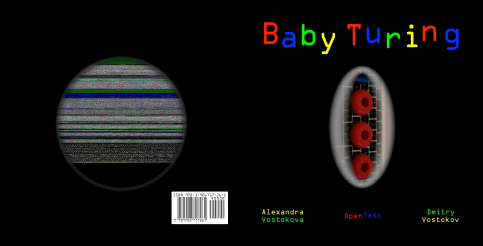
Arts & Photography section
The new link "Arts & Photography" has been added to the top panel featuring cartoons from Narasimha Vedala.
Advanced Windows Crash Dump Analysis (Systematic Software Fault Analysis Series)
This is planned for publication after Windows Crash Dump Analysis book. Preliminary information is:
Windows Device Drivers: Practical Foundations
Forthcoming introductory book for software engineers transitioning to kernel-mode development or expanding their knowledge and skills. Can also useful for technical support and escalation engineers troubleshooting and debugging complex software issues. Preliminary information is:
- Author: Dmitry Vostokov
- Paperback: 128 pages
- ISBN-13: 978-0-9558328-4-0
- Publisher: Opentask (15 Apr 2009)
- Language: English
- Product Dimensions: 22.86 x 15.24
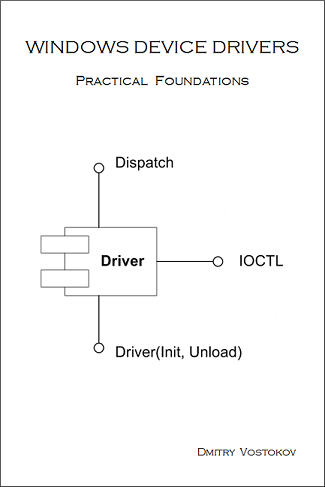
Unmanaged Code: Escaping the Matrix of .NET
This is a forthcoming book about .NET debugging seen in a wider context than CLR. Preliminary information is:
Inside the C++ Object Model
Thu, 02/14/2008 - 13:11 — Dmitry VostokovAlthough Windows user space and kernel interfaces are based on C language huge amount of code present in crash dumps especially in user space was written in C++ and compiled by C++ compilers. Therefore it is absolutely necessary to understand how C++ constructs need to be translated to C in order to implement various OO concepts like inheritance and polymorphism because from there you can see familiar straightforward mapping between C language constructs and assembly language. This book gives software maintenance and support engineers such solid foundation necessary to understand possible variants of C++ object layout and method dispatch that you might encounter during crash dump analysis.
Reference Stack Traces (Volume 3)
Thu, 01/31/2008 - 16:52 — Dmitry VostokovThe reference contains normal thread stacks and other information from Windows Server 2003 x86 complete memory dump. Useful when trying to spot anomalies in crash dumps from problem servers.
Printed versions are available for purchase at the nominal price to cover manufacturing costs:
Reference Stack Traces (Volume 2)
Tue, 01/29/2008 - 17:39 — Dmitry VostokovThe reference contains normal thread stacks and other information from Windows Vista x64 complete memory dump. Useful when trying to spot anomalies in crash dumps from problem workstations.
Printed version is available for purchase at the nominal price to cover manufacturing costs.
Reference Stack Traces (Volume 1)
Mon, 01/28/2008 - 12:42 — Dmitry VostokovThe reference contains normal thread stacks and other information from Windows Vista x86 complete memory dump. Useful when trying to spot anomalies in crash dumps from problem workstations.
Printed versions are available for purchase at the nominal price to cover manufacturing costs:
Sample Chapter from Windows Crash Dump Analysis book
PDF file can be downloaded from this link:
Sample Chapter: Introduction to WinDbg Scripts for C/C++ Users
Windows via C/C++
Thu, 12/20/2007 - 16:06 — Dmitry VostokovJust got this nice hardcover book: 5th edition of "Programming Applications for Microsoft Windows". It has 200 pages less but more material covered because of smaller font and line spacing. What's new:
C++ classes throughout - I guess writing .NET books influenced this decision
x64 Windows specifics
New Vista and Windows Server 2008 API
New tools
Updated classes for API hooking
and the most important for me - updated SEH material and Windows Error Reporting (WER) coverage with very nice diagrams.
Bearing in mind that the previous 4th edition is 8 years old it should be read by everyone using Win32 API, debugging user mode applications (knowledge of Win32 subsystem helps greatly), extending or maintaining legacy Windows software. Highly recommended. 5 starts for 5th edition :-)
Advanced Windows Debugging
Fri, 11/30/2007 - 12:21 — Dmitry VostokovThis is the book I wanted to read when I started doing Windows crash dump analysis more than 4 years ago. Although other excellent Windows debugging books existed at that time including "Debugging Applications" written by John Robbins and "Debugging Windows Programs: Strategies, Tools, and Techniques for Visual C++ Programmers" written by Everett N. McKay and Mike Woodring I needed a book that discusses debugging in the context of WinDbg and other tools from Debugging Tools for Windows package. So I had to learn from day-to-day experience and WinDbg help. Now WinDbg is a de facto standard in debugging and troubleshooting on Windows platforms and the book comes at the right time to teach the best practices and techniques. I'm reading it sequentially and I'm on the page 106 at the moment reading Chapter 2 "Basic Debugging Tasks" and I have already learnt techniques and debugging strategies I missed due to certain habits in using WinDbg. Even if you do mostly memory dump analysis and not live debugging of your product you also will learn a lot to apply in your day-to-day problem identification and troubleshooting. I'll write more about this wonderful book as soon as I finish reading it. Absolutely must have for any Windows software engineers, escalation engineers and technical support engineers willing to advance their debugging skills.
Inside the Machine: An Illustrated Introduction to Microprocessors and Computer Architecture
Fri, 11/16/2007 - 14:05 — Dmitry VostokovWhen you write programs in C or C++ it is good to know how these languages are represented in assembly language code. When you analyze crash dumps or do low level debugging involving assembly language code it is good to know how CPU abstractions are implemented in hardware. I read this book during summer and was impressed by its clarity and visual presentation. Instruction latency, pipelining, caching, locality, micro-ops fusion and memory aliasing are explained very well on color pictures without complication and all recent Intel CPU architectures including their history and motivation behind there development are covered. I particularly like data/code streams as a general computer architecture model. Highly recommended.
Forthcoming Book about Windows Crash Dump Analysis (Systematic Software Fault Analysis Series)
The reader will master crash and hang memory dump analysis for process, minidump, kernel and complete memory dumps from Windows XP/Vista/7 and Windows Server 2003/2008/R2.
Secure Programming with Static Analysis
Sun, 08/19/2007 - 12:18 — Dmitry VostokovAlmost finished reading the book and I would never look at any source code again without security in mind. The first chapters describe how static analysis tools work. Later chapters on buffer overflows are excellent although with some minor typos. Web programming chapters on HTTP, XML, services, privacy and privilege were very illuminating. I was very eager to buy this book because I had been developing parts of C++ static code analysis tool for Programming Research (PRQA C++) 5 years ago although at that time the company didn't anticipate this market segment. Highly recommended for software engineers developing new or maintaining old software and security engineers performing code reviews.
BIOS Disassembly Ninjutsu Uncovered
Fri, 08/10/2007 - 16:10 — Dmitry VostokovIf you are interested in modern BIOS internals, disassembling, accessing it from user or kernel mode, BIOS security and rootkits this book is a must read and as far as I know this is the only book available in the market. Reading x86 assembly language skill is a prerequisite because the book provides many BIOS code snippets. How to use IDA Pro and its freeware version for reverse engineering BIOS code is also covered. Highly recommended.
Contents:
Chapter 1: PC BIOS Technology
Chapter 2: Preliminary Reverse Code Engineering
Chapter 3: BIOS-Related Software Development Preliminary
Chapter 4: Getting Acquainted with the System
Chapter 5: Implementation of Motherboard BIOS
Chapter 6: BIOS Modification
Chapter 7: PCI Expansion ROM Software Development
Chapter 8: PCI Expansion ROM Reverse Engineering
Chapter 9: Accessing BIOS within the Operating System
Chapter 10: Low-Level Remote Server Management
Chapter 11: BIOS Security Measures
Chapter 12: BIOS Rootkit Engineering
Chapter 13: BIOS Defense Techniques
Chapter 14: Embedded x86 BIOS Technology
Chapter 15: What's Next?
Debugging by Thinking: A Multidisciplinary Approach
Sat, 06/30/2007 - 23:51 — Dmitry VostokovThis is a very interesting book that views debugging from various perspectives including critical thinking. It uses GDB debugger for C++ debugging case studies and therefore this book can be considered as a GDB tutorial. Highly recommended for Unix software engineers especially if their job involves software maintenance. This book is also useful for escalation engineers willing to improve their troubleshooting and debugging skills. Very useful is Appendix B that lists and annotates various books related to debugging.
Developing Drivers with the Windows Driver Foundation
Thu, 05/17/2007 - 00:11 — Dmitry VostokovThe book arrived today and I like it. Certainly when more and more drivers are WDF (KMDF or UMDF) and you start getting crash dumps you will definitely need to understand this framework. So you better start reading about it in advance. Additional covered topics are ETW (event tracing for Windows), WinDbg extensions, PREfast and static driver verifier. Highly recommended.
Writing Secure Code for Windows Vista
Fri, 05/04/2007 - 13:33 — Dmitry VostokovHighly recommended to learn about new changes and additions to Vista code base.
Contents:
1. Code Quality (SAL annotation for C/C++ string buffers, banned API and cryptography, static analysis tools)
2. User Account Control, Tokens and Integrity Levels
3. Buffer Overrun Defenses (ASLR, stack randomization, heap defenses, NX, /GS, SafeSEH)
4. Networking Defenses (IPv6, Network List Manager, RSS, Winsock Secure Socket Extensions, Windows Firewall)
5. Creating Secure and Resilient Services
6. Internet Explorer 7 Defenses
7. Cryptographic Enhancements
8. Authentication and Authorization (CardSpace, GINA changes)
9. Miscellaneous Defenses and Security-Related Technologies (Windows Defender API, Signing, TPM, Credential User Interface API, Kernel Mode Debugging issues)
Imperfect C++: Practical Solutions for Real-Life Programming
Thu, 04/12/2007 - 21:20 — Dmitry VostokovI bought this book 2 years ago and finally found time to read it. This is very good book if you already know C++ well from reading Effective C++, Exceptional C++ and many other top-quality books where C++ is praised. Now you would see its limitations and problems. I like the discussion about C and C++ ABI (application binary interface). To be honest I like every chapter. Almost (if not all) aspects of C++ are discussed and it is certainly good refresher if you haven't read any good C++ book in the last couple of years.
Highly recommended.
Professional Rootkits
Wed, 04/04/2007 - 10:34 — Dmitry VostokovThe short book aims to cover kernel hooks, process injection, I/O filtering, I/O control, memory management, process synchronization, TDI communication, network filtering, email filtering, key logging, process hiding, device driver hiding, registry key hiding, directory hiding, etc. However it is a poorly written book. As the author explains the publisher contacted him after the rootkit was written. 80-90% of the book is just code listings. Code was made looking as being developed incrementally to teach you writing rootkits but that was done post factum and every new code change or addition is not highlighted... There are even code editing mistakes. If you know kernel stuff everything would look obvious but if you don't know there is no explanation. I regret that I ordered and bought it. The amount of information that I digested fits in a couple of pages. Another book written by Greg Hoglund "Rootkits: Subverting the Windows Kernel" is much better.
Not recommended.
The Old New Thing: Practical Development Throughout the Evolution of Windows
Sun, 03/11/2007 - 00:17 — Dmitry VostokovThe books explains various Win32 API quirks, digs into internals of Windows dialog manager, Visual C++ compiler (class layout) and discusses many other less known facts. A must read book for any Win32 API developer (even experienced). The author worked in application compatibility team and provides real insight into various components of Windows GUI and user interface and explains why they work in certain ways. I even found a couple of bugs in my own tools after reading this book. The section about Windows dialog manager and message delivery is very enlightening.
Highly recommended.
.png)
